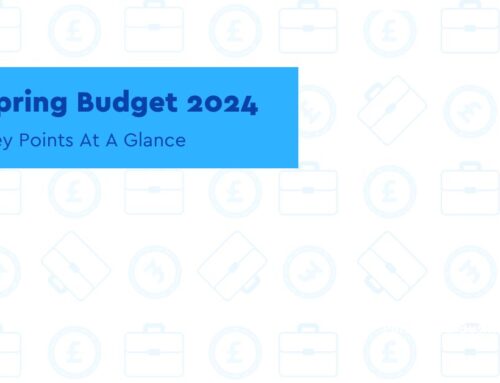What you need to know ahead of the upcoming Autumn Budget
Key Points
- This year’s Autumn Budget will be delivered on October 27 alongside a Spending Review
- We’re going to be making sure we keep you up-to-date with all the key announcements
This year’s Autumn Budget will be delivered on October 27 alongside a Spending Review, the Chancellor confirmed earlier this month.
This will also be Rishi Sunak’s third Budget as Chancellor after taking over from Sajid Javid in February 2020.
What we already know is that 2022/23 will be a year for the biggest tax rises in many decades, as a raft of tax changes which intend to raise £12bn a year for social care kick in from next April.
In an unusual move, the government recently announced a series of measures around tax, national insurance, dividends and healthcare more than a month in advance of the Budget. This was seen as a surprise to many as personal taxation rises, or cuts, are the centrepiece of any Budget.
That’s not to say we can rule out further big changes to personal tax rates. The Treasury will be keen to rebalance the nation’s books following the huge cost of the furlough scheme and other pandemic measures.
Low tax receipts and high expenditure meant the government borrowed £325.1 billion in the financial year ending March 2021. That’s equivalent to 15.5% of the UK’s gross domestic product (GDP), the highest such ratio since the end of World War Two.
Expectations ahead of the Budget
In the March 2021 Budget, the Chancellor announced that several tax thresholds will be frozen until 2026 to help fix public finances in the wake of the coronavirus crisis.
These include the capital gains tax (CGT) allowance – the amount of profit you can make when selling certain assets before you need to pay tax.
But there is speculation that further changes to CGT rules are about to be made. Sunak ordered an urgent review from the Office of Tax Simplification (OTS) in July 2020. Proposals made by the OTS included aligning CGT more closely with income tax rates and reducing the CGT allowance from £12,300 to between £2,000 and £4,000.
The Autumn Budget could be the moment that the Chancellor confirms whether any of these proposals will be adopted.
Two weeks ago, the Treasury published draft legislation and guidance for consultation on a proposed new “residential property developer tax, to be charged on profits of companies carrying out residential property development”. The proposed new residential property developer tax (“RPDT”) would be charged on the profits of companies that undertake UK residential property development activities and is intended to apply for accounting periods ending on or after 1 April 2022 (with an apportionment for accounting periods which straddle this date). The tax would apply to profits above a determined annual allowance.
The consultation ends on October 15, 2021 with the aim that draft legislation will be included in the 2022 Finance Bill.
It’s also expected that the final design of the tax, including the rate of the tax, will be announced at the Autumn Budget.
Reports claim one policy change on the table is cutting the minimum salary at which repayments of student loans kicks in from £27,000 to £23,000.
It’s also unlikely we will see any big changes to pensions as Sunak has already risked the wrath of pensioners by temporarily ditching the ‘triple lock’ for a double lock, in response to a sharp spike in wages.
How we’ll be covering the Budget
We’re going to be making sure we keep you up-to-date with all the key announcements from this very important Autumn Budget.
As you know, we avoid sending too many notifications throughout the week (we normally send two at most). However, we understand the importance of making sure you’re informed of all the key tax announcements and their implications for you and your business, so we’ll be sending a few updates on the day of the Budget (Wednesday, October 27); firstly detailing the main headlines and an end of day summary so you can catch up on the key events and talking points.
We’ll also be sending out our special Budget Weekly Wrap on the Friday following the event, rounding up the key stories in one message to make sure you don’t miss out on anything as the announcements come in thick and fast.
CBI: Seize the moment to unlock an investment revolution this Autumn
The government must use October’s joint Budget and Comprehensive Spending Review to transform the UK economy over the decade ahead.
Key Points
- The CBI has identified four levers (below) that the government can use to spark both domestic and international investment
- These include delivering smart taxation that rewards investment and accelerating the creation of new skills for new markets
On October 27, the Chancellor of the Exchequer will set out the government’s 3-year spending plans at the Spending Review alongside an Autumn Budget.
In response, the CBI recently launched its joint submission to the Autumn’s fiscal events, calling on the government to kickstart an investment revolution across and within the UK:
Decisions made this Autumn at the Budget and Comprehensive Spending Review (CSR), will define our trajectory for the decade ahead. They bring an opportunity to generate higher investment, stronger growth, and UK leadership in new markets. If we miss this chance, we’ll fall back into old patterns of tax rises and austerity, chronic underinvestment, regional inequality, and a risk we miss our net zero target. When we look back on this decade, it’s crucial we see a government that took decisive action and unlocked investment. A government that went for growth and made big bets for the UK.
What can the government do to stimulate investment?
Following conversations with members and international investors, the CBI has identified four levers (below) that the government can use to spark both domestic and international investment. Unlocking these across both the Budget and Spending Review will be crucial to ensure the UK levels-up, reaches net zero, and grasps the prizes identified within the CBI’s leading economic vision – Seize the moment. All of this will ensure that business can help the government to reach its ambitions and achieve the much-needed Plan for Growth.
What the CBI has called for:
- Deliver smart taxation that rewards investment: creating a smarter tax environment to drive domestic and international investment behaviour will be crucial to boosting productivity and creating sustainable public finances. The current tax system needs to be better aligned to the government’s priorities particularly net zero and levelling-up, and reward businesses that choose to invest.
Recommendations on smart taxation include:
- Unlock business investment into net zero and levelling-up through seismic reform of the business rates system, including increasing the frequency of revaluations and removing disincentives preventing green improvements
- Commit to introduce full expensing for capital expenditure beyond 2023 and targeted ‘green’ investment-focused capital allowance mechanisms
- Accelerate the creation of new skills for new markets: higher investment in skills is vital to economic recovery and increasing productivity, raising wages in real terms, and ensuring people who have been held back for too long can realise their potential. It is also a cross-cutting enabler for raising R&D investment, decarbonising and levelling-up. Closing future skills gaps could provide a £150bn uplift to GVA by 2030. Addressing current skills needs will enable firms to invest in future skills, retraining and upskilling.
Recommendations on skills include:
- Turn the Apprenticeship Levy into a Lifelong Learning Levy to unlock necessary business investment in training, and enabling firms to use the levy on a wider range of more flexible and shorter courses
- Introduce individual training accounts for unemployed individuals and those with the biggest retraining needs to spend on accredited courses
- Remove barriers hampering firms’ ability to recruit overseas workers by urgently updating the Shortage Occupation List (SOL) in line with the Migration Advisory Committee’s outstanding recommendations and committing to annually reviewing, and making the points-based system more flexible
- Fast-track catalytic public investment to underpin private sector investment: government must provide catalytic public investment to speed up the development of new industries and cutting-edge tech in order to decarbonise and establish major infrastructure projects. Public investment is vital to laying the foundations for future private investment. It aids the UK’s competitiveness and helps stimulate new markets where only public intervention can make the difference.
Recommendations for catalytic public investment include:
- Deliver on the Plan for Growth and Innovation Strategy by delivering on the commitment to invest £22bn in direct domestic R&D funding by 2024-25, setting out a three-year spending profile and front-loading funding to maximise private investment
- Designate energy efficiency and heat as an infrastructure priority by providing a comprehensive long-term package of funding to make our buildings more energy efficient and move away from fossil fuel heating solutions
- Provide long-term funding to decarbonise UK transport systems (including for public transport) and to develop a UK electric vehicle market. Also use public investment to stimulate private sector investment and R&D into technologies to decarbonise heavier modes of transport (such as freight, aviation and maritime)
- Ignite government as the market maker: business has greater confidence to invest when it has clarity, certainty, and long-term commitments from the government. The government must use its new-found regulatory freedoms and the UK’s reputation for marrying high standards and innovation, to support domestic business growth and attract FDI. The government can do this through its unique role as a market maker by establishing necessary market rules, pricing structures, institutional bodies, utilising regulators and publishing long-term strategies that give clarity and detail.
Recommendations on government’s role as a market maker include:
- Require all regulators to prioritise innovation, net zero and investment as part of their core remits, by setting out new, transformational terms of reference. Ensuring regulation is better aligned to government priorities and the Plan for Growth
- Include a strong focus on the role and contribution of economic clusters in promoting regional growth in the Levelling Up White Paper, including a commission for the CBI to write the playbook on taking clusters from good to great. And work with industry to develop a toolkit responsive to business demand to support and nurture clusters
This article was sourced from CBI: https://www.cbi.org.uk/articles/seize-the-moment-to-unlock-an-investment-revolution-this-autumn/
What is the Spending Review?
Key Points
- The multi-year Spending Review will set UK government departments’ resource and capital budgets for 2022-23 to 2024-25
- The Treasury said core departmental spending would grow “in real terms at nearly 4% per year on average” over the current Parliament
Along with the 2021 Budget, on October 27 the Chancellor will unveil details of a three-year Spending Review, setting the UK government departments’ resource and capital budgets for 2022-23 to 2024-25.
Many announcements in the Spending Review generally only apply to England, with much of government activity elsewhere in the UK controlled by the devolved administrations – the Scottish government, Welsh government and Northern Ireland Executive.
The review comes as Institute for Fiscal Studies director Paul Johnson said that the UK was facing “the biggest tax rising year in many decades” after the Prime Minister announced tax changes to raise £12bn for social care.
“This is £12bn on top of £25bn of tax rises in the Budget – this must be the biggest tax rising year in many decades,” he told BBC Radio 4’s World At One programme.
The Treasury said core departmental spending would grow “in real terms at nearly 4% per year on average” over the current Parliament.
By 2024-25, officials said that would mean spending will be £140bn more per year in cash terms than in 2019.
If the Chancellor spends extra money on a service which is covered by devolution, such as education, the devolved administrations get extra money too.
In a recent statement, the Chancellor outlined that the goal is to continue to support businesses and jobs through:
- Ensuring strong and innovative public services – making people’s lives better across the country by investing in the NHS, education, the criminal justice system and housing.
- Levelling up across the UK to increase and spread opportunity; unleash the potential of places by improving outcomes UK-wide where they lag and working closely with local leaders; and strengthen the private sector where it is weak
- Leading the transition to Net Zero across the country and more globally
- Advancing Global Britain and seizing the opportunities of EU Exit
- Delivering our Plan for Growth – delivering on our ambitious plans for an infrastructure and innovation revolution and cementing the UK as a scientific superpower, working in close partnership with the private sector
Among the major decisions in the 2020 Spending Review were:
- The NHS in England will get an extra £6.3bn to help meet the government’s commitment to get the NHS budget to £148.5bn by 2023-24
- Schools in England have been promised an extra £2.2bn in 2021-22, taking total spending to £49.8bn
- Defence will get an extra £16.5bn over four years
- The government’s target for overseas aid spending will be cut from 0.7% of national income to 0.5%
- A new £4bn levelling up fund for upgrading infrastructure such as roads
Get In Touch
At Morgan Reach, we understand every business needs a little help now and again-especially when it comes to the financial side of things. Therefore, to help our clients and visitors we endeavour to cover as much of the business news as possible. If you are self-employed or run a business and need assistance and advice on how these news could make a difference to you or your business, feel free to get in touch with the experts at Morgan Reach. Our business growth experts at Morgan Reach will guide you through what support is available for you or your business as well as the latest news that may affect you.







